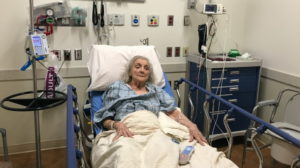The ABC’s of Geriatrics: A Focus on Fundamentals to Prevent Cardiac Arrest
How can we best care for our oldest and most fragile patients? We put a lot of work into education and practice in the management of cardiac arrest, but what if we focused more on identification and correction of the factors that may lead to cardiac arrest? When we do this for geriatric patients it can lead to significantly improved outcomes. This program focuses on pre-hospital management of geriatric peri-arrest factors with the goal of avoiding cardiac arrest and, if the worst happens, optimizing BLS and ALS resuscitation care.
Teaching Formats:
-Lecture
-Discussion
-Demonstration
-Question and Answer
Learning Objectives: Students will be able to:
- Cognitive: Describe the effects of senescence on the cardio-respiratory systems of the body.
- Cognitive: Differentiate and prioritize circulation, oxygenation, and respiration.
- Psychomotor: Demonstrate how to “elevate and oxygenate” a patient prior to / in conjunction with ventilation.
- Affective: Defend the decision-making process for selection of airway management tools and techniques in a variety of clinical scenarios.
- Affective: Explain the rational for coordinated CPR efforts
For more information and resources click here.









